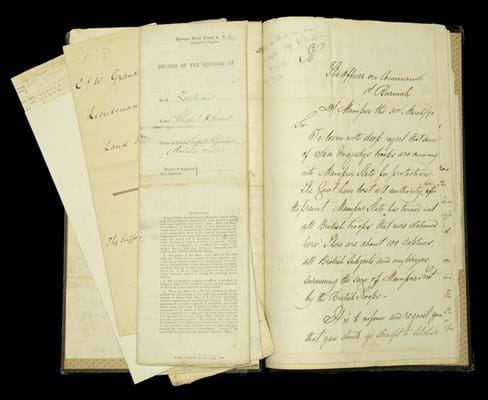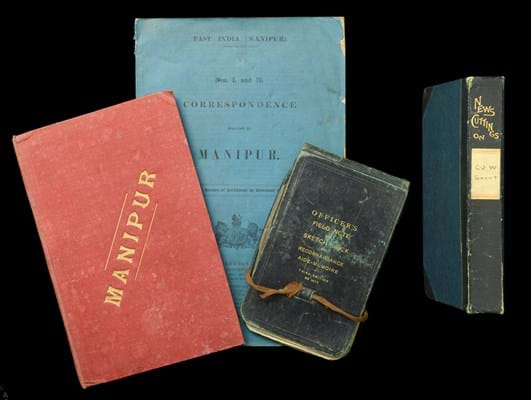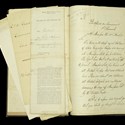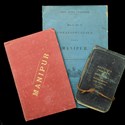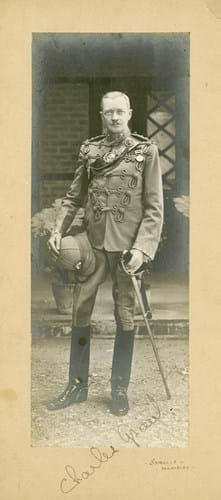
They were awarded to 30-year-old Scotsman Lieutenant, later Colonel, Charles Grant of the 12th Regiment (2nd Burma Battalion) Madras Infantry.
The Manipur kingdom had become a buffer state between the British and the Burmese but by 1891 relations had broken down and five British representatives had been executed and three other officers captured after an abortive attack.
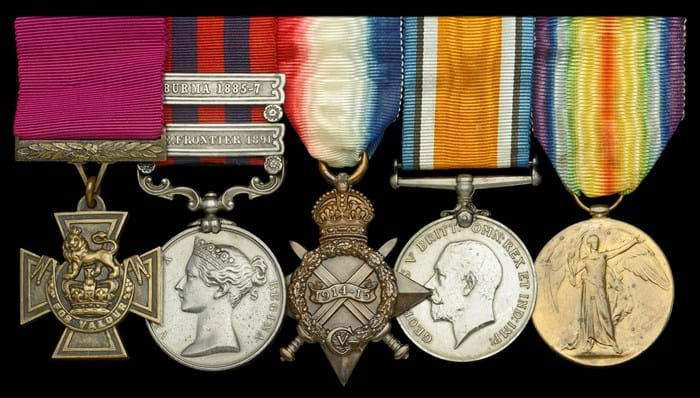
Victoria Cross medal group awarded to Lieutenant Charles Grant for his actions at Manipur, 1891 – estimate £300,000-400,000 at Dix Noonan Webb on June 23.
Rescue mission
Grant immediately set out to relieve the presumed British captives and exact retribution. His 80-man Tammu detachment, comprising 40 Ghurkas and 40 Punjabi troops stormed the enemy position at the head of his men under a heavy fire at Thobal, driving the 800-strong foe from their entrenched defences.
Within improvised fortifications, Grant then became surrounded by an estimated 2000 of the returning enemy which attacked the small besieged force over a period of eight days.
Grant led a number of brilliant sallies to dislodge and disperse the Manipuris each time they approached and then, in negotiations over the release of prisoners, deceived them into thinking they were facing a much larger force. He recalled in his notes that he “borrowed two stars from a jemadar’s shoulder straps and placed them on his own. He was no longer a Subaltern commanding a small detachment, but a Colonel, with his regiment at his back.”
With dwindling ammunition and growing disease among his ranks, Grant successfully withdrew his force to link up with reinforcements and led his men to the attack once more in taking an enemy fort.
Badly wounded, he recalled “the bullet had gone through the root of my neck just above the shoulder and carried all the cloth of my collar and shirt right thro’ the wound leaving it quite clean’ - after which he was carried triumphantly into Manipur by his men and those concerned in the murder of British officers were brought to justice and punished.
Extensive archive
The VC is to be sold together with a substantial associated archive of historical importance.
Items of particular significance include Grant’s unpublished leather-bound ‘Officer’s Field Note and Sketch Book and Reconnaissance Aide-Memoire’ in which he meticulously records the march to Manipur and the capture and subsequent defence of Thobal, illustrated by several detailed sketches of both actions and positions; and a file of original letters, including the negotiations between Grant and the Manipuris and a coded message from Grant in Greek characters to the relief force.
'Hero of Manipur'
Mark Quayle, associate director and medal expert at DNW, said: “The action fought by Lieutenant Grant and his small band of Gurkhas in 1891 on the North-East Frontier of India was a great epic of empire which brought him fame during his lifetime as the ‘Hero of Manipur’.
“His storming of the defences at Thobal was remarkable in itself but it is no exaggeration to say that the subsequent defence of that place for eight days with just 80 men against an estimated 2000 of the enemy is a feat that probably ranks alongside Rorke’s Drift in the history of famous defences against overwhelming odds.”


